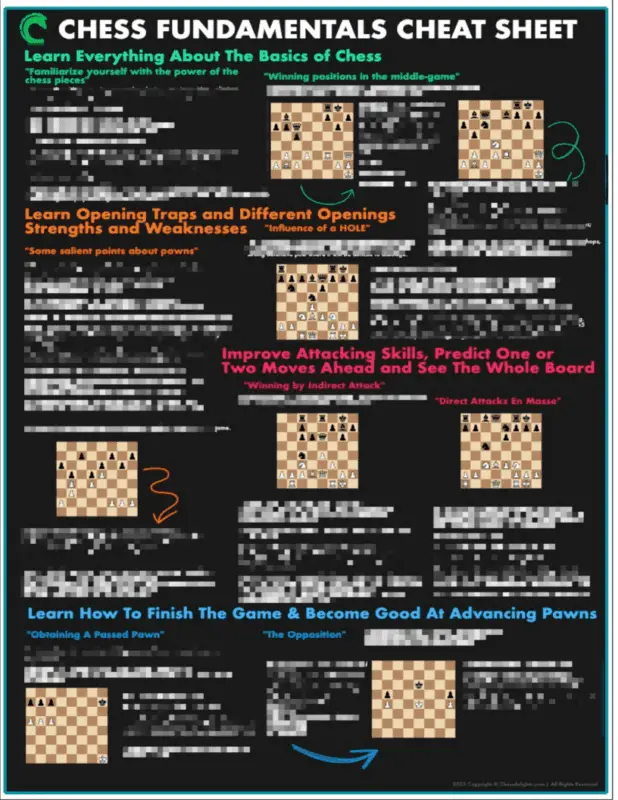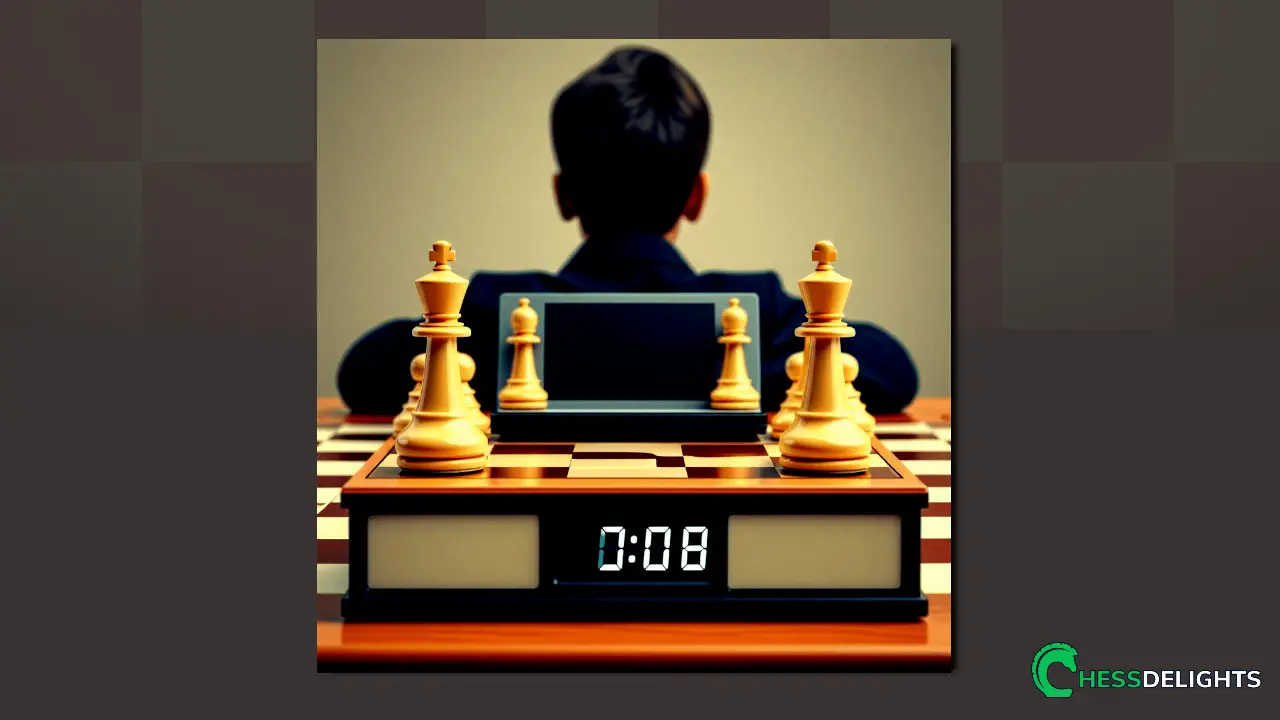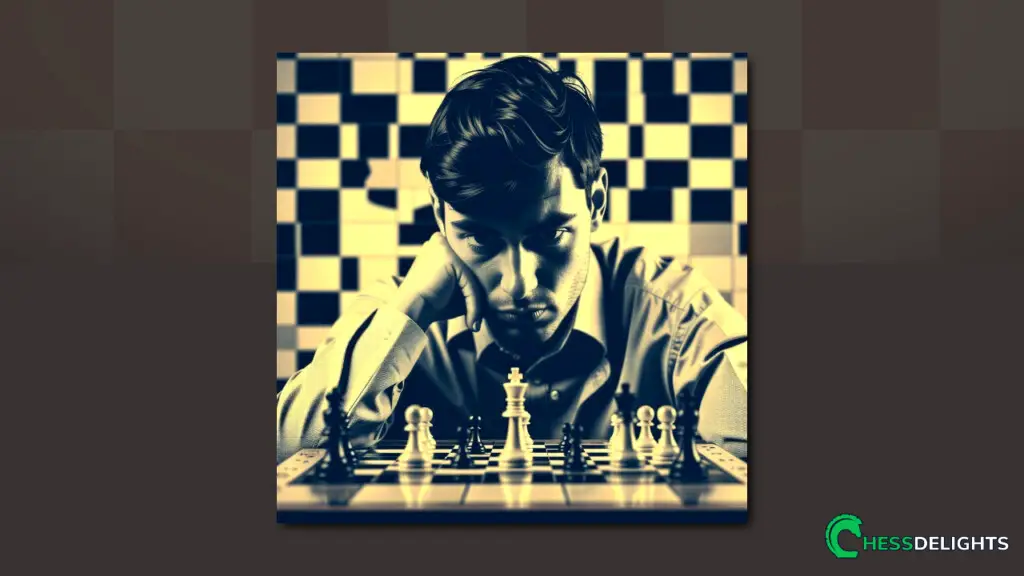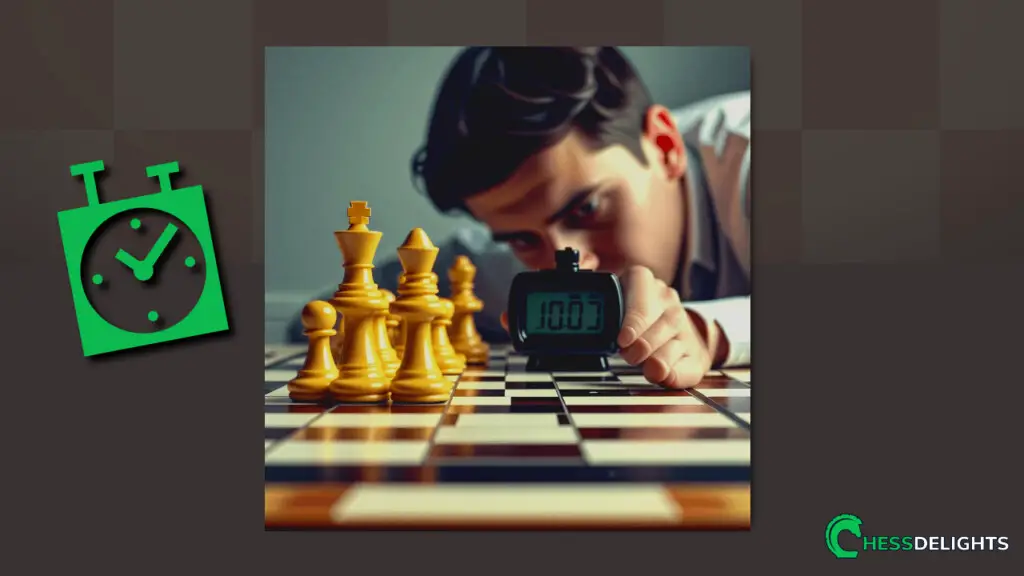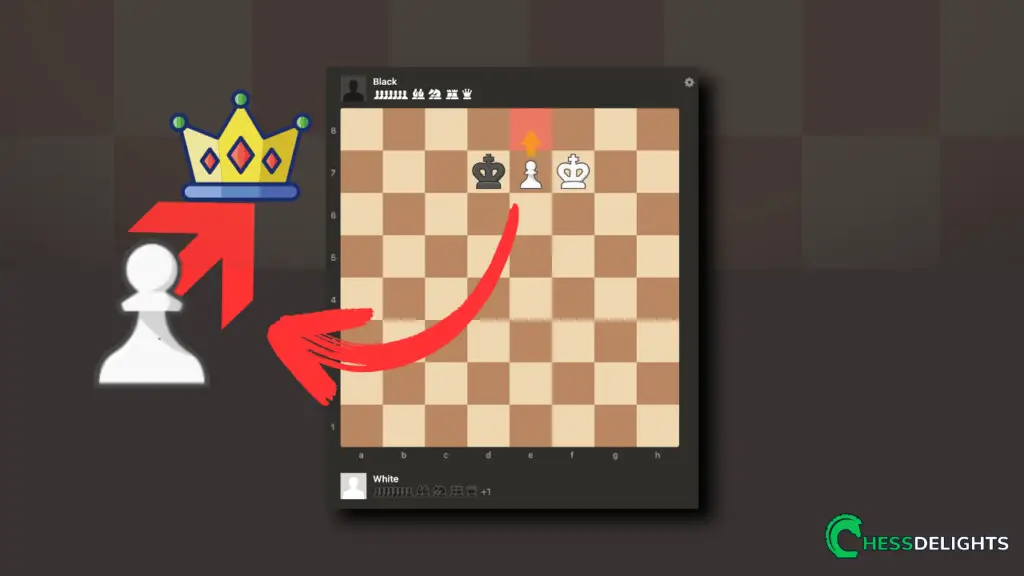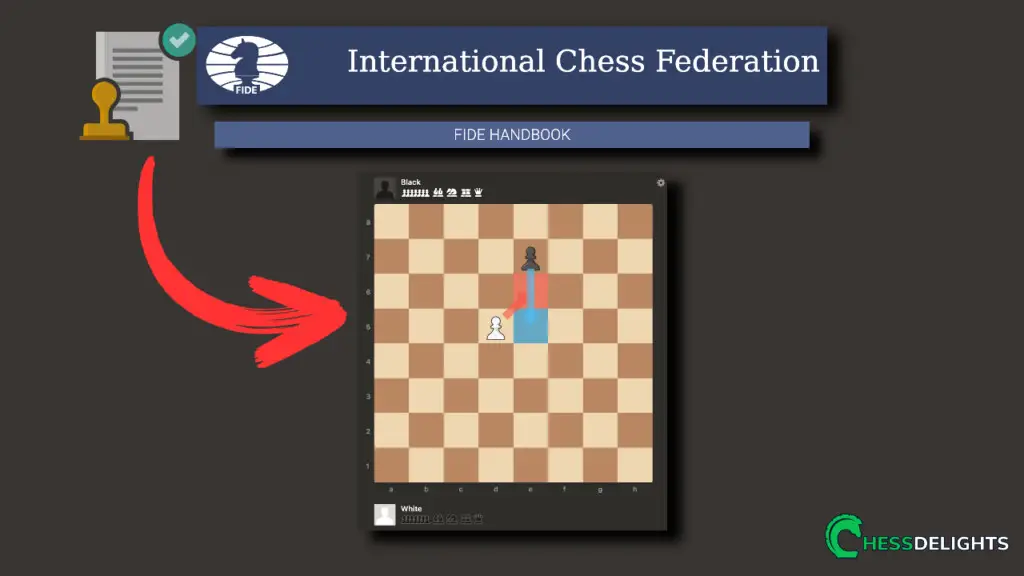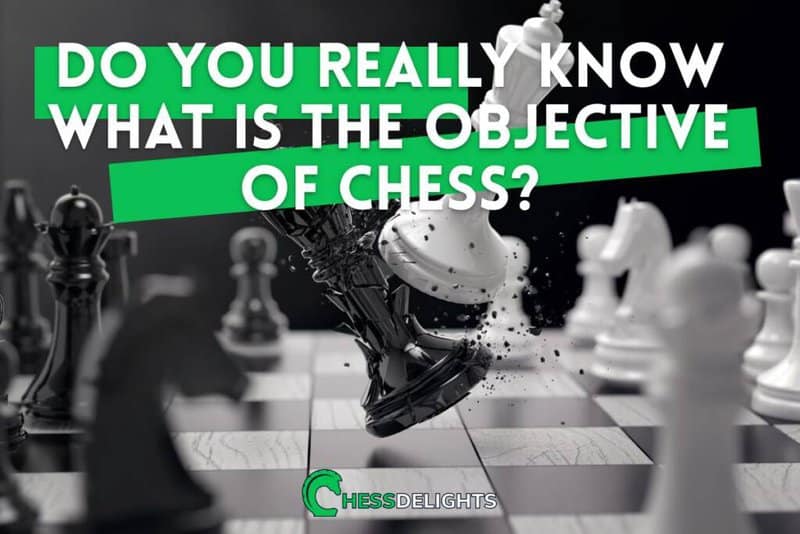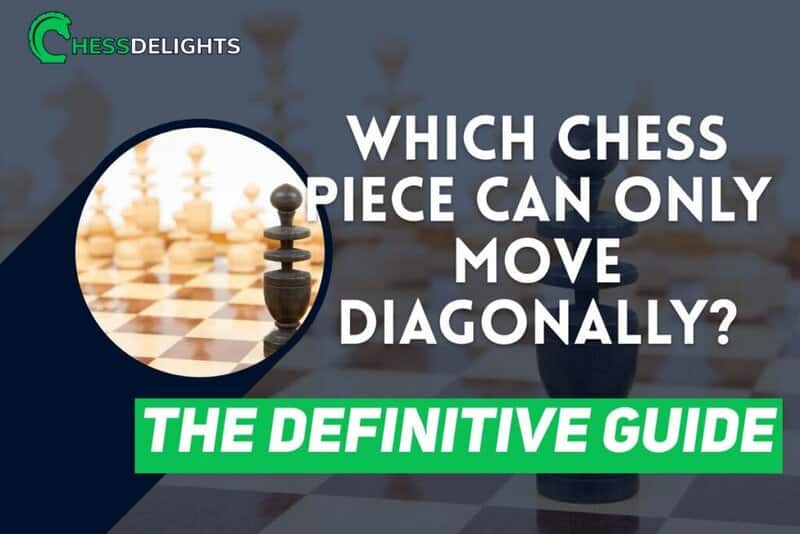A chess clock is a special clock used in chess games to keep track of how much time each player takes to make their moves. It has two clocks and buttons that players press after they finish their turn. This helps stop one player’s clock and start the other’s.
The chess clock is important because it prevents players from taking too long and helps decide the winner if someone runs out of time. It also makes the game more exciting since players have to think about their moves and manage their time carefully.
Chess clocks can be analog (like traditional clocks) or digital (with more features, like adding extra time after each move). Using a chess clock can help young players improve their time management skills and make the game more challenging.
If a clock stops working during a game, players can usually agree to reset it or use a new clock with a fair amount of time set.
Table of Contents
How Does a Chess Clock Influence the Pace and Strategy of a Chess Game?
From my personal experience, a chess clock has a significant impact on the pace and strategy of a chess game. Each player is given a fixed amount of time to make all their moves, which can range from rapid 10-minute games to longer 90-minute sessions.
This time pressure forces players to think and decide quickly, which can drastically increase the intensity and speed of the game.
In terms of strategy, the chess clock adds an extra dimension to the game.
Players not only have to think about the quality of their moves, but also the amount of time they are spending. I've had games where I had a superior position but lost because I ran out of time.
This often results in strategic sacrifices where players may opt for simpler, less optimal moves to save time.
The chess clock also introduces the concept of ‘time trouble', where a player has very little time left to make a lot of moves.
This can lead to blunders or missed opportunities, adding another layer of unpredictability to the game.
Recommended Reading: If you want to learn more about fundamentals of chess, read this article.
What is the Role of a Chess Clock in Competitive Chess Play?
In competitive chess, the role of a chess clock cannot be overstated.
It ensures a level playing field by regulating the time each player has to make their moves.
Without a clock, a player could potentially take a significantly longer time to make their moves, which can give them an unfair advantage.
In my experience, the chess clock also adds a psychological element to the game.
Seeing your time running out while your opponent has plenty of time left can be quite nerve-wracking, and managing this pressure is a crucial part of competitive play.
Chess clock forces players to manage their time effectively.
This is especially important in endgame situations, where a player might have to make a series of complex moves in a short amount of time.
Recommended reading: If you want to read more about how to setup a chess clock, check out this article.
Why is Using a Chess Clock Considered an Essential Part of the Game?
As I've mentioned chess clock is considered an essential part of the game for several reasons.
First and foremost, it adds a time management element to the game.
Chess is not just about making the best moves, but also about making them within a certain time frame. This makes the game more challenging and exciting.
Secondly, a chess clock ensures fair play.
Without a clock, games could potentially drag on indefinitely, or players could employ delaying tactics to frustrate their opponents (I've experienced this).
The clock ensures that each player has an equal amount of time to make their moves.
From my own experience, using a chess clock also helps improve your decision-making skills.
You have to make the best move you can within the given time, which often means making tough calls under pressure. This can be a valuable skill not just in chess, but in many aspects of life.
The chess clock is an integral part of the game that adds depth, fairness, and excitement to the game of chess.
How Does a Chess Clock Contribute to Fair Play in Chess?
It ensures that each player gets an equal amount of time to contemplate their moves, promoting fair play…
Without a chess clock, a player can potentially take an unreasonable amount of time to strategize and thus gain an unfair advantage over their opponent.
I've found that a chess clock keeps the game moving at a steady pace and prevents any delay tactics.
It pushes you to think efficiently and make swift decisions, thereby adding an extra layer of challenge to the game.
You're not just battling your opponent's tactics, but also the ticking clock.
What Happens in a Chess Game When a Player Runs Out of Time on their Chess Clock?
If a player's time runs out, they typically lose the game, given that the opponent has sufficient material to deliver a checkmate.
This rule has been a part of my chess wins and losses numerous times, and it creates an interesting strategic element. One must not only focus on making the best move, but also on managing their time effectively.
It's a delicate balance that can often tip the scales of the game.
Does the Use of a Chess Clock Make the Game More Challenging or Exciting?
Absolutely! The use of a chess clock gives a thrilling element of time pressure into the game.
It compels players to think quickly and accurately, making the game undoubtedly more challenging.
I've found that the ticking clock often amplifies the tension in the room – each second ticking by is a second closer to making a potentially game-changing move.
This sense of urgency and the constant need to outthink your opponent under time pressure indeed makes the game more exciting.
It's not just about who has the superior strategy, but also who can execute that strategy more efficiently within the given time.
How Do Different Time Controls on a Chess Clock Affect the Game?
Different time controls on a chess clock can significantly alter the nature of a chess game.
In my experience, when dealing with faster time controls such as ‘blitz' or ‘bullet' chess, the game becomes intensely fast-paced.
Players have to rely heavily on their intuition and quick decision-making abilities. I have often found myself prioritizing quick responses over the best strategical move due to the time pressure.
This can lead to a thrilling but volatile game where a single oversight can drastically change the outcome.
On the other hand, longer time controls such as those used in ‘classical' chess games provide players with ample time to contemplate their moves.
I have often taken advantage of this additional time to delve into deeper layers of strategy and calculate several moves ahead.
This results in a game that is less about quick reactions and more about strategic planning and foresight.
What are the Rules and Etiquette Related to the Use of a Chess Clock?
Using a chess clock comes with its own set of rules and etiquette that players are expected to adhere to.From my experience, one of the most crucial rules is that players must hit their side of the clock with the same hand they used to move a piece.
Not doing so can result in penalties…
It is also considered bad manners to distract or disturb your opponent by hitting the clock too hard.
Another important etiquette that I have often seen violated by beginners is keeping their hand on the clock or hovering over it.
This is generally frowned upon and can lead to accusations of unfair play.
Equally important is the rule that the clock must not be hit before completing the move, which means a player's hand must leave the piece before hitting the clock.
How Have Chess Clocks Evolved Over Time and What Impact has this had on the Game?
Over the years, I have seen the transition from traditional mechanical chess clocks to modern digital ones. This evolution has significantly impacted the game, introducing new layers of strategy…
Modern digital chess clocks come with advanced features such as different time controls for different phases of the game.
For instance, in my games, I have used digital chess clocks that allow for time increments or delays after each move.
This means that a certain amount of time is added back to a player's clock after each move, promoting more thoughtful play rather than rushing to save time.
Some digital clocks also automatically count moves, which can be a handy feature in games where specific rules apply after a certain number of moves.
Can a Chess Game be Played without a Chess Clock and How Does this Change the Game?
Yes, a chess game can be played without a chess clock, and it changes the dynamics of the game considerably. Without a chess clock, there's no time limit for a player to make a move…
This can make the game drag on for an excessive amount of time, which I have experienced in friendly matches. Moreover, without the pressure of a ticking clock, the game becomes less challenging.
One of the key aspects of chess that I personally enjoy is the time management element, deciding when to spend more time thinking and when to make quick moves.
This element is lost when playing without a clock.
Do Professional Players Use Specific Strategies Related to the Chess Clock?
Professional chess players often employ specific strategies related to the chess clock. In my observations of professional games, I have noticed players applying pressure on their opponents by making quick moves early in the game.
This forces the opponent to use more of their time, potentially leading to time pressure later in the game. On the other hand, some players deliberately take their time to contemplate a complex position, especially in longer time control games.
They understand that investing time can lead to a better understanding of the position, which can be advantageous in the later stages of the game.
This is a clear demonstration of how time management can be used as a strategic tool in chess.
How Does the Use of a Chess Clock in Traditional Chess Compare to Online Chess Games?
Traditional Chess:
- In traditional chess, players use a physical clock.
- Each player has their own time display.
- The game starts when the first move is made.
- After making a move, a player hits a button on the clock.
- This changes the time to the other player.
- The sound of the ticking clock can make it exciting, especially in tournaments.
- Every second counts, and hitting the clock adds to the thrill of the game.
Online Chess:
- In online chess, players use a digital clock.
- The clock is controlled by the game software.
- You don't need to hit a button; the software does it for you after each move.
- This makes it easier to focus on playing since you don’t have to worry about the clock as much.
- Online games can feel faster and smoother.
Time Management:
- No matter where you play, managing your time is very important in chess.
- Good players know when to think carefully about their moves and when to make quick decisions.
- They understand that every second matters and try to use their time wisely.
Whether you're playing with a physical clock or online, these strategies help you play better. Enjoy your chess games!
Recommended reading: If you want to learn about tournament chess clock rules, read this article.
